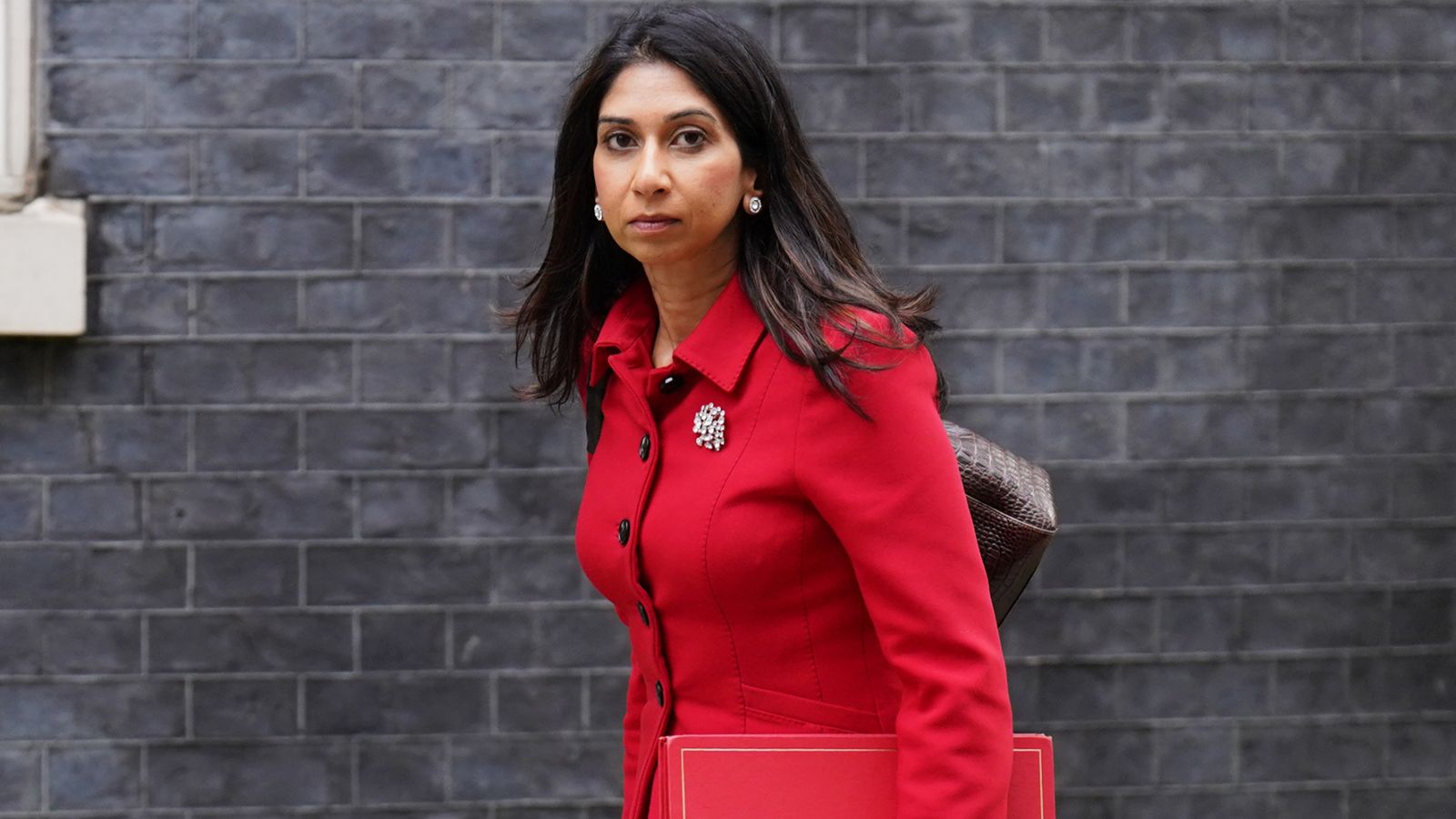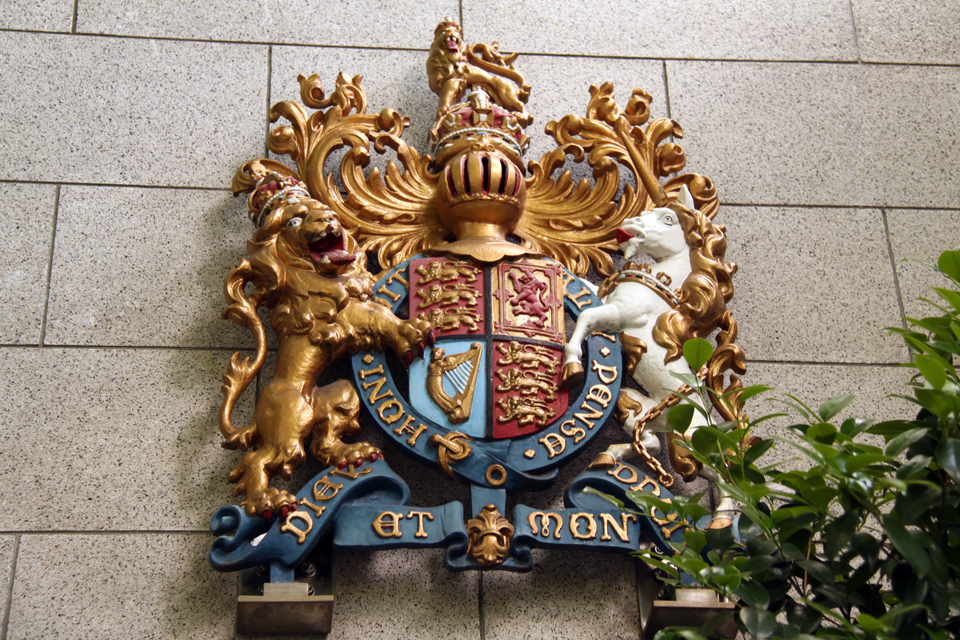Our partnership with Latin America: Foreign Secretary’s speech in Chile
Thank you for hosting me.
It’s an honour to be here. Our setting has so much resonance for Chile’s recent political history.
Constructed by volunteers during the Allende presidency.
Requisitioned by the Ministry of Defence in the Pinochet era.
Re-born as a Cultural Centre, it now bears the name of one of two Chilean Nobel prize winners, Gabriela Mistral.
Two hundred years ago, a fierce revolutionary struggle was raging on both sides of the Atlantic.
A battle of ideas in which liberty, self-determination and representative government set themselves against absolutism and autocracy.
It reached its dramatic climax here. In Latin America.
Under the inspirational leadership of figures like Simon Bolivar, Bernardo O’Higgins, José de San Martín or Miguel Hidalgo.
Latin America’s struggle for independence was surely one of the most uplifting episodes of the momentous revolutionary era that laid the foundations of the modern world.
A tale of hardship, perseverance, exile and betrayal.
Of stunning victories and extraordinary sacrifice.
Of inspiration, leadership and unity.
From the very beginning, my great and gifted predecessor, George Canning, foresaw that Latin America would hold the balance of power in world politics.
And this is also the continent that gave birth to the extraordinary genre that is magical realism…
And imagine if I were giving this speech in the magical realist tradition…
… I would tell you that George Canning appeared to me in my dreams…
… taking the form of a mighty, powerful jaguar…
…conveying a message for me to pass to you.
Although actually, that didn’t happen.
But Canning’s wisdom about ‘the New World being called into existence to redress the balance of the Old’ rings as true today as when he said it in 1826.
The allure and romance of this continent drew many others.
Including thousands of battle-hardened veterans who volunteered in the British Legions.
Men like James Rooke, after whom a battalion is named in the Colombian army.
Or Admiral Thomas Cochrane.
The man Napoleon dubbed ‘the Sea Wolf’.
And who established both the first Chilean Naval Squadron and the forebear of today’s Brazilian Navy.
Or Martin Guisse, who founded the Peruvian Navy.
I am delighted that warships in Latin American navies bear their names to this day.
I am also proud of the role the United Kingdom played in supporting the struggle for Latin America’s independence.
And in laying the foundations for your subsequent success.
British engineers and British finance helped build the railways and the ports that connected Latin America to the markets across the world.
Two hundred years on from that revolutionary period, the tectonic plates of world politics are shifting once again.
Today I want to talk about values, climate and the shared bonds between our peoples.
We are living through the beginning of a new era of geopolitical competition.
Alongside these trends, a battle of ideas is taking place once again.
This time, its focus is on the nature and the future of the international order.
Our position is clear.
Respect for sovereignty, respect for territorial integrity, respect for self-determination and human rights must prevail.
Alongside democracy, the rule of law, liberty and freedom.
Free and fair elections are the foundation of any stable, healthy democracy.
I know these values are shared across Latin America, although not yet enjoyed by all.
Your support in the UN for Ukraine’s right to defend itself against Russian aggression has made that crystal clear.
Talking of self-determination and democracy, it would be remiss of me not to talk about the Falklands.
The Falkland Islanders, like everybody else, deserve the freedom to decide their own future, in political, cultural, economic and development terms.
Their 2013 referendum made clear that they wish to maintain their current relationship with the UK, as is their absolute right.
And the UK will continue to support them.
But protecting self-determination and democracy is not the sole challenge.
We live in a world of rapidly increasing transnational threats.
Climate change is the most urgent and obvious example.
We need strong multilateral institutions, representing the world as it is today, economically, politically and demographically.
This is not currently the case.
The UK recognises that. And we want to work with you to change it.
Countries across Latin America have a decisive role to play in reshaping the international order and the multilateral system to fit the world of the 21st century.
Just as Canning foresaw.
The population of this corner of our planet and its economy have grown rapidly in recent decades.
In the year of my birth, 1969, Latin America was home to 279 million people.
Today that figure is more than 664 million people.
Your demographic and economic weight gives you a pivotal role in determining whether the international order will endure.
As I said last December, the shift in world power has been evident for some time.
And it is my goal as the UK Foreign Secretary to ensure that our strategic thinking reflects this simple fact.
That’s why I’ve come to Latin America this week.
I want to take forward the agenda set out in 2010 by my predecessor William Hague at Canning House in London.
Since then, we’ve opened or reopened Embassies and High Commissions across the region.
The UK has dozens of Honorary Consuls from Tijuana on the Mexico-US border to Punta Arenas on the southern tip of Chile.
The UK has welcomed thousands more Chevening scholars to our universities.
And the number of Latin Americans visiting the UK has nearly doubled.
The British Council has extended its reach five-fold since 2010, reaching more than 100 million people across the Americas last year.
UK trade and investment with Latin America recovered strongly last year from their post-pandemic low.
The total value of imports and exports rose by a massive 45% last year to more than £40 billion.
But with Latin America representing only 2% of UK imports and only 2½% of UK exports worldwide, I recognise that there is much more to do on trade and investment.
Our shared strategic focus on critical minerals, green hydrogen and sustainable infrastructure is encouraging.
The UK’s imminent accession to the Trans Pacific Partnership, joining Mexico, Peru and Chile, is a positive step forward.
And hopefully soon joined by Costa Rica, Ecuador and Uruguay.
Last week, the UK completed the third round of talks on a UK-Mexico Free Trade Agreement.
Together we have a strong democratic voice in favour of the rules-based international system.
Together we must speak out against the systemic threats to these values arising from multiple parts of the globe.
And together we must work together on climate, the rights of women and girls, green energy, cyber security, science and technology.
At COP26 in Glasgow, my country pledged £300 million to protect the Amazon.
As a result of our Partnerships for Forests Programme, which I saw just days ago in Colombia, more than 62,000 hectares of land are now being managed sustainably across Colombia and Peru.
Another joint focus is the globally strategic lithium triangle that lies between Argentina, Bolivia and Chile.
Rio Tinto’s billion-dollar investment is forecast to yield 100,000 tonnes of lithium by 2027.
This will fuel the green battery revolution.
We’ve supported Chile to sell bonds worth more than £21 billion on London’s Sustainable Bond Market.
We’ve leveraged $464 million of green finance for Mexico.
Our green hydrogen technology offers Latin American farmers a cheaper and cleaner alternative to petroleum-based fertilisers, boosting food security everywhere.
As part of our International Women and Girls Strategy, the UK has helped Chevening Alumni establish a gender-focused NGO called Hace la Fuerza.
Bringing together women from Argentina, Colombia, Mexico, Paraguay, Peru and Uruguay, we have built a community of future Latin American leaders.
Because when women’s rights are advanced, everyone gains.
These examples – and others like them – show how partnership between the UK and the countries of Latin America can make a real difference.
Not just to our security and prosperity.
But to that of the whole world.
There is so much more that I would like us to do together.
Our bilateral joint roadmaps will set direction in Brazil, Colombia, Peru and elsewhere.
The universal values on which the international order stands are timeless.
But our world’s multilateral institutions do need reform, in particular to give more voice and more influence to Latin America.
The UK wants Brazil to sit as a permanent member of the UN Security Council.
And we must work towards broader reform, in partnership with others.
The call for systemic reform of our international financial institutions must be strengthened.
Together we can unlock the critical green investments that this region needs from the World Bank and the Inter-American Development Bank.
The UK government supports the momentum behind Prime Minister Mottley’s Bridgetown Initiative.
The poorest and most vulnerable must benefit from overdue reform of international financial institutions.
International tax reform, coupled with a crackdown on money laundering and illicit finance will stop the leakage of much-needed funding from national treasuries.
Which is why the UK is providing £20 million for rule of law and anti-corruption reforms in Panama, Colombia, Ecuador and Peru. And £2.2 million for tax reform in Brazil.
But we should not neglect people-to-people ties.
The UK is home to more than a quarter of a million Latin Americans – amongst them are 71 players in the English Premier League, including 6 players from Argentina’s World Cup winning squad.
My team Arsenal, even with 3 fantastic Brazilian players, all called Gabriel, still couldn’t win the league.
Hundreds of thousands of Britons visit this outstandingly beautiful region every year.
Spanish is already the second most popular foreign language in British schools – and is forecast to take the top slot in the coming years.
I want your best and brightest researchers and students to come to the UK’s world-leading universities.
And I want more British students to come to Latin America to study as well.
We should be ambitious for our future relationship.
Not just because of the historical bonds of friendship that have united us for more than 200 years.
But because we all treasure the same fundamental values that inspired the creation of the international order.
It will only evolve, survive and ultimately prosper with the support and whole-hearted engagement of this great region.
Two hundred years ago, Simon Bolivar said that ‘the freedom of the New World is the hope of the universe’.
Your love of freedom continues to inspire the world today.
It’s why I’ve come here from London to revive old friendships and build new ones.
And to pledge our long-term commitment.
I’m offering the UK’s support on the issues that we together most care about.
And I ask for yours in exchange.
As a partner.
But, even more importantly, as the representative of this continent’s oldest friend.
Thank you.



